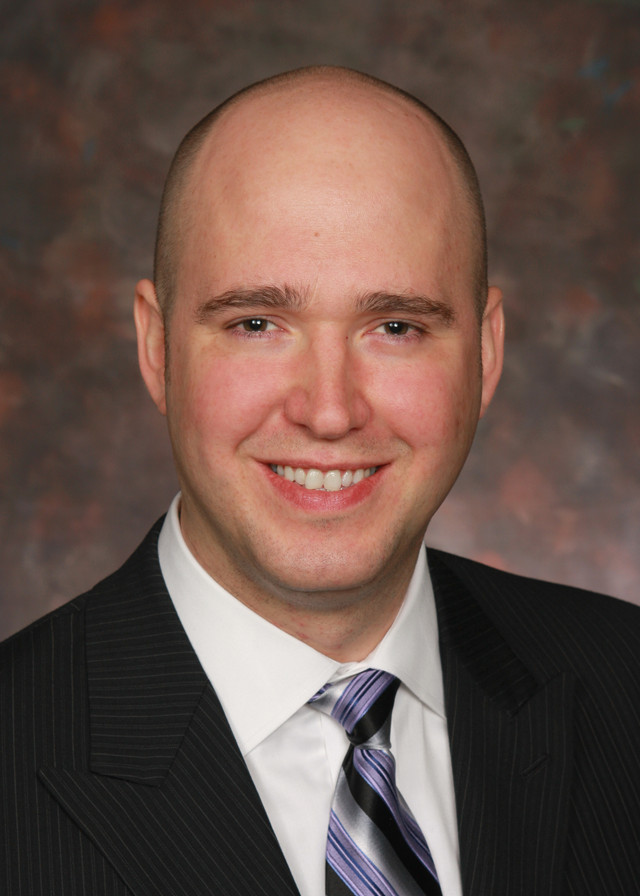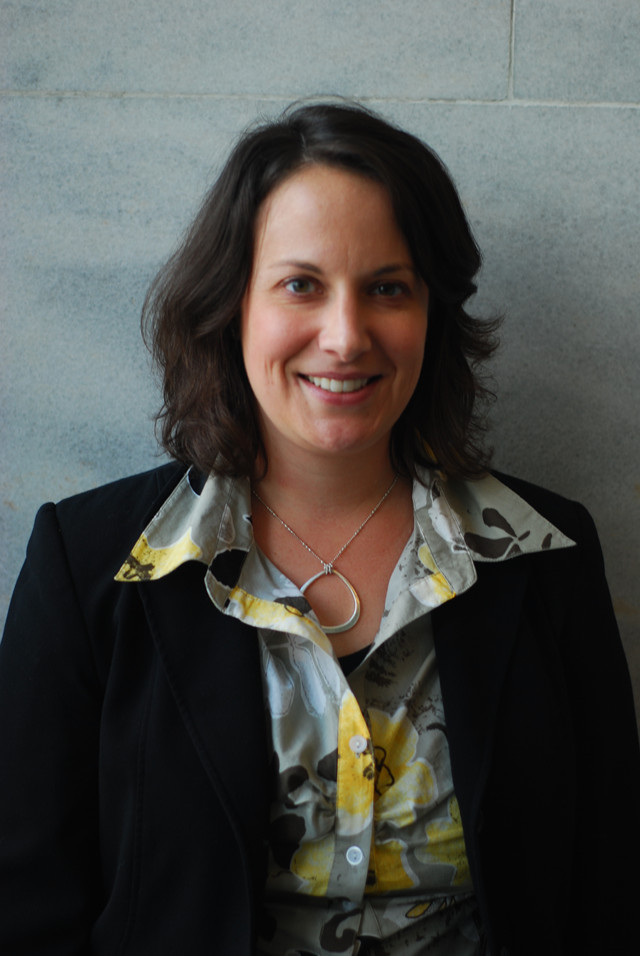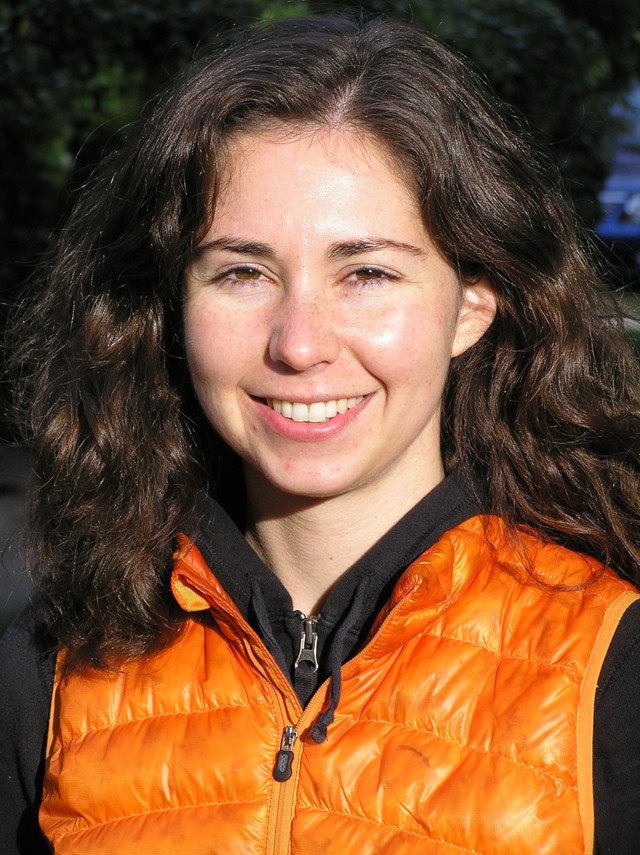
by Brian Fisher Johnson Wednesday, May 23, 2018
Last month, a new Congress and president came to Washington, D.C. And with them came new staff, including five geoscience congressional science fellows. The fellows will take their scientific prowess to the Hill, and will use their training to work with senators, representatives and committees on policy issues. But the transition from field boot to suit jacket won’t be easy, they told EARTH reporter Brian Fisher Johnson.

David William Szymanski. Credit: Steve Dean/Steve Dean Photography
David William Szymanski
Sponsoring organization: Geological Society of America and the U.S. Geological Survey
Background: Doctorate in geology from Michigan State University (2007). Researched chemical evolution of magmas in northern Costa Rica and worked as a forensic scientist for the Michigan State Police, as well as for a contract forensic consulting firm in Michigan.
On the Hill: Working for Sen. Jon Tester, D-Mont.
What are some of the hot issues you expect to work on this year?
The economy is going to be huge … but that’s really tied into things like energy. How do we chart a course from fossil fuels to renewable energy? And how do we provide jobs while at the same making sure that our economy is stable?
What are some of the challenges you think you might face?
Getting used to the pace that things operate on the Hill. Science loves deliberation. You’re trying to look for uncertainty — places where a theory doesn’t hold up. But on the Hill, you have to be able to make decisions based on a very limited amount of information.
What do you hope to learn or accomplish on the Hill?
Science and policy overlap almost everywhere, yet scientists and policymakers have a hard time understanding how the other group operates. My goal is to learn the legislative process from all angles and then figure out how I can help bridge this gap, supporting legislation with good science and relaying the importance of the process to other geoscientists.
Where do you hope to end up after this?
I really like providing a way to communicate science to people who are not scientists. Maybe I’ll head to the classroom. I really love teaching.
If you could have served in Congress at any time in history, when would it have been and why?
The early 1800s — during the truly formative years of Congress. Not only were there huge challenges for the new national government, but both houses were trying to work out their own rules and relationships with the president and the Supreme Court.

Maggie Walser. Credit: Kevin Rennert
Maggie Walser
Sponsoring organization: American Geophysical Union
Background: Doctorate in atmospheric chemistry from the University of California at Irvine (2007). One-year postdoctoral fellowship at the National Council for Science and the Environment.
On the Hill: Working on the Senate Energy & Natural Resources Committee, chaired by Jeff Bingaman, D-N.M.
What are some of the hot issues you expect to work on this year?
Energy supply, renewable energy and energy transmission are likely to come up. My personal portfolio includes water issues, specifically the large amounts of water that are used in electricity generation and production of transportation fuels.
What are some of the challenges you think you might face?
Things tend to move much faster on the Hill than they do in the lab. Also, I think that scientists tend to think in more concrete terms, which can be hard to let go of when you enter the policy world. Science isn’t the only thing to consider when developing policy, and more abstract ideas like public opinion and politics can often be hard for scientists to get used to.
What do you hope to learn or accomplish on the Hill?
I’d like to develop an understanding of the legislative process and the relationship between the legislative and executive branches.
Where do you hope to end up after this?
In the near term at least, I’d like to continue to be involved in science policy. Whether I remain on the Hill or work in the nonprofit sector, this fellowship provides a tremendous training and educational experience.
If you could have served in Congress at any time in history, when would it have been and why?
Ten to 20 years ago, so I could make sure the U.S. established some sort of carbon legislation — cap and trade or a carbon tax.

Gabrielle Dreyfus. Credit: Ben Phillips
Gabrielle Dreyfus
Sponsoring organization: American Geological Institute (publisher of EARTH)
Background: Doctorate in geosciences from Princeton University and the University of Pierre and Marie Curie, Paris, France (2008). Dissertation work involved reconstructing climate records and improving ice core chronology in Antarctic ice over the past 800,000 years.
On the Hill: Working for Sen. Byron Dorgan, D-N.D.
What are some of the hot issues you expect to work on this year?
Definitely energy is a big one. Also climate, and how those two are related because different energy technologies are going to be more or less challenged or promoted based on the policies that are adopted.
What are some of the challenges you think you might face?
Not being able to probe as deeply into issues as I would want to as a scientist. Plus, as a science student, there’s one concern when formulating a lot of the work: the scientific question and methodologies. It’s generally easy for people to agree on what good science is. But on the Hill, things are not as clear-cut when looking at different energy options that are tradeoffs. Some people are going to benefit from choices that are made and some are going to be hurt.
What do you hope to learn or accomplish on the Hill?
My main goal is to understand which policies make it and why — essentially, the decision-making process.
Where do you hope to end up after this?
Not sure, but this is opening a lot of doors and presenting a lot of avenues that I really never had a chance to consider.
If you could have served in Congress at any time in history, when would it have been and why?
The early 1960s when Kennedy was elected because there was this tremendous optimism about going to the moon.

Richard Maxwell Thompson. Credit: Katrina Mangin
Richard Maxwell Thompson
Sponsoring organization: American Institute of Physics
Background: Doctorate in geosciences from the University of Arizona (2004). National Science Foundation fellowship teaching science in elementary schools. Contract teaching at the University of Arizona.
On the Hill: Working for Rep. Raul Grijalva, D-Ariz.
What are some of the hot issues you expect to work on this year?
I’m working on water policy. That’s always been big but it’s only going to get bigger because climate change is going to exacerbate water supply problems. It’s always been a big deal in the Southwest, but it’s becoming a bigger deal all over the country.
What are some of the challenges you think you might face?
[Laughs] The whole thing is a challenge. In science we sort of deal with basic objective truth. In politics, human relations and interactions are more important than just what is the objective truth. When doing research, whoever has the best science wins. The Hill isn’t like that. It’s not worse or better, it’s just different.
What do you hope to learn or accomplish on the Hill?
I want an experience that I can translate into the classroom.
Where do you hope to end up after this?
Hoping to teach a public policy class.
If you could have served in Congress at any time in history, when would it have been and why?
The year 2200 because that would mean I would be hundreds of years old!
Lea Shanley
Sponsoring organization: American Society of Agronomy; Crop Science Society of America; Soil Science Society of America
Background: Doctorate in Environmental Monitoring Program from the Nelson Institute for Environmental Studies, University of Wisconsin at Madison (2008). Research focused on GIScience and the application and coordination of geospatial technologies in agriculture, land use and resource management. Worked as an outreach specialist for the Wisconsin State Cartographer’s Office and as a research analyst for a private GIS consulting firm in Wisconsin.
On the Hill: Working for Sen. Bill Nelson, D-Fla.
What are some of the hot issues you expect to work on this year?
I’ll be assisting my office on energy, coastal and marine issues, and Everglades restoration.
What are some of the challenges you think you might face?
Transitioning from academia to politics and policy no doubt will be a tremendous adjustment. I’ll be learning the appropriate organizational protocols and social norms, how to compress complex scientific ideas into easily digestible stories, and how to function in a fast-paced office environment.
What do you hope to learn or accomplish on the Hill?
This fellowship offers me a unique opportunity to gain firsthand experience in the political process, to broaden my knowledge of policy issues in environmental and resource management, and hopefully, to share my expertise in a meaningful way.
Where do you hope to end up after this?
In the long term, I would like to find a public sector or research position that allows me to explore policy issues related to science and technology, while serving resource-dependent local communities through outreach and advocacy.
If you could have served in Congress at any time in history, when would it have been and why?
No better time than now.
© 2008-2021. All rights reserved. Any copying, redistribution or retransmission of any of the contents of this service without the expressed written permission of the American Geosciences Institute is expressly prohibited. Click here for all copyright requests.